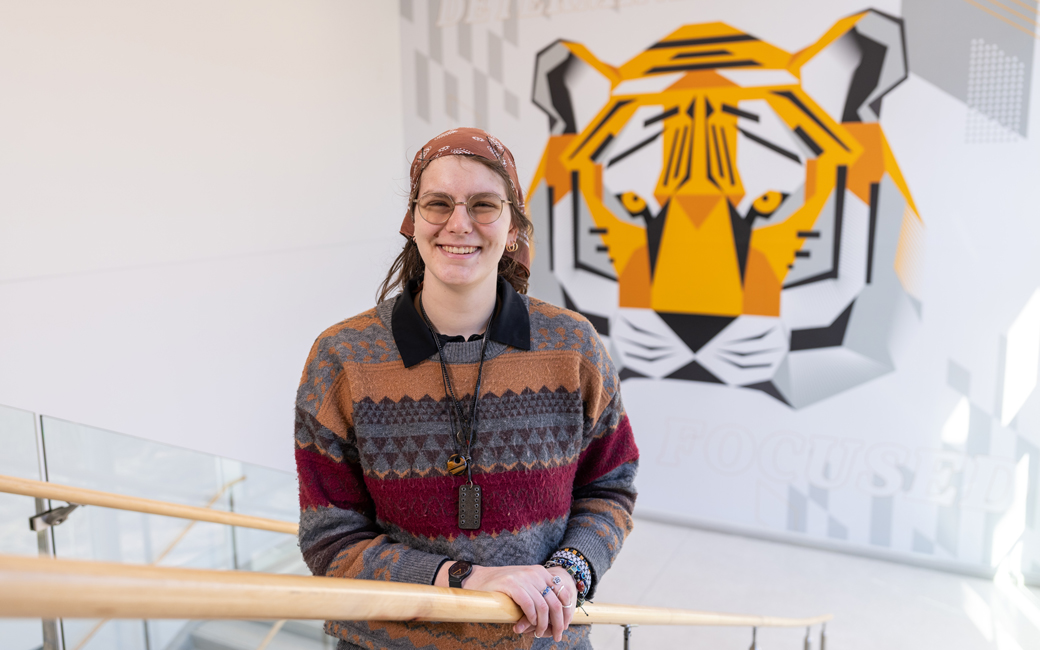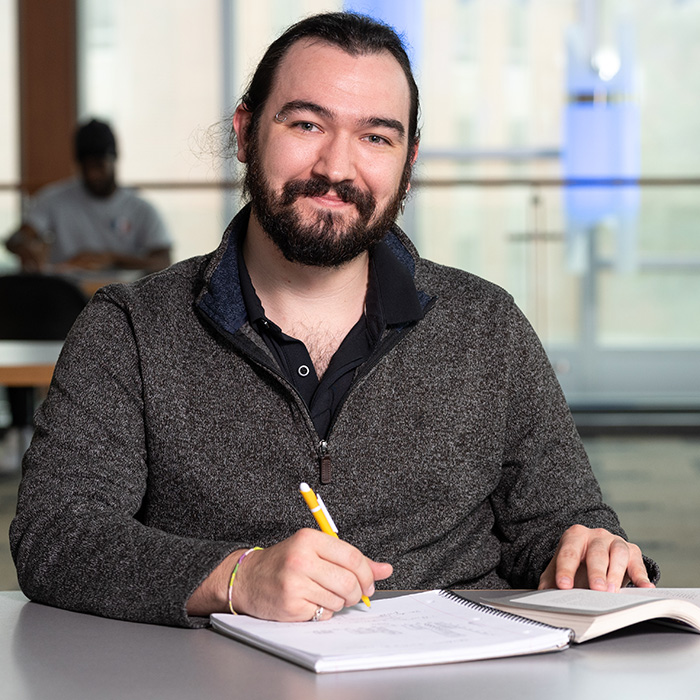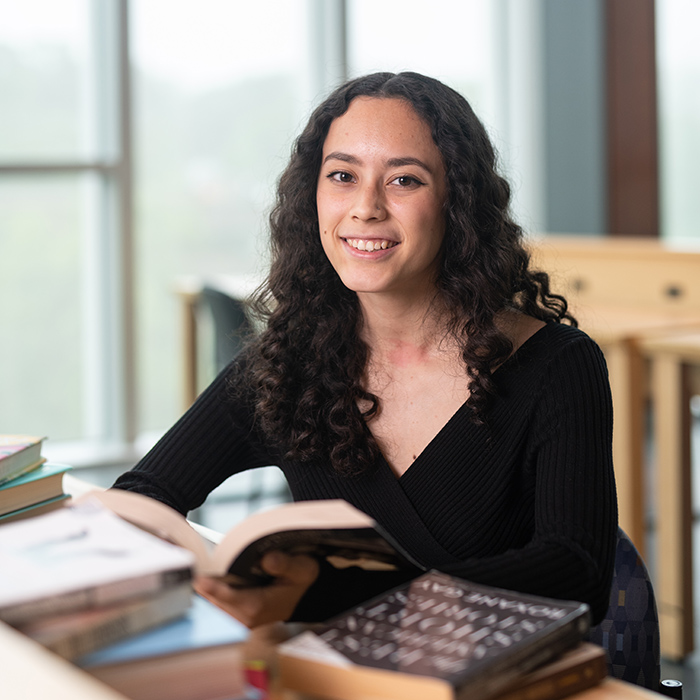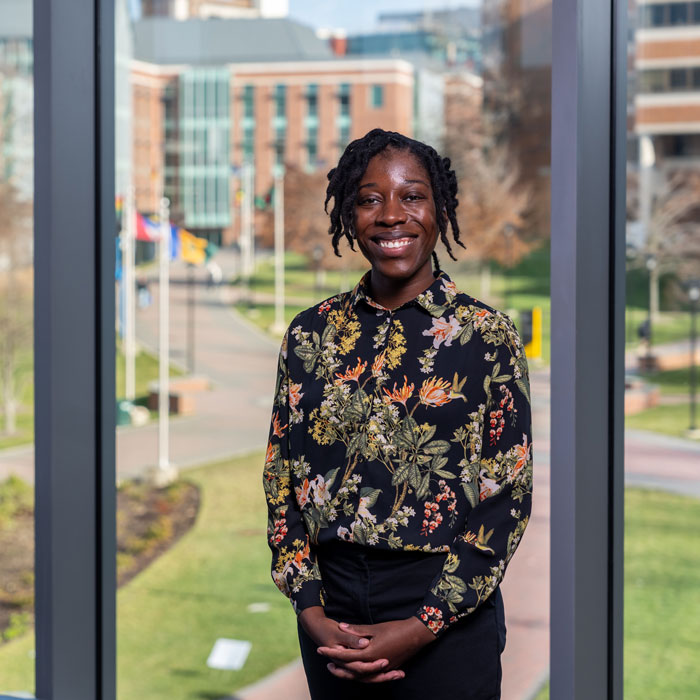Why Study English
Learn how to write correctly, clearly and cogently; to deliver a compelling argument; and to adopt the most effective techniques of persuasion.
Findley Holland’s ‘25 unyielding persistence, support systems have helped her grow personally, academically

As an autistic student living with celiac disease and hypermobility connective tissue disorder, Findley Holland ’25 has overcome numerous obstacles and continues to flourish through her studies and creative work.
Holland was unable to read and write until fifth grade. However, her literacy grew from her family of published authors and creative writers. “I was surrounded by the oral tradition of telling stories and reading growing up,” Holland explains. “My mom would read to me a lot and take me to the library. She would put on “Harry Potter” audiobooks so I could listen along while trying to read, and that helped me a lot.”
“That's one of the great things about audiobooks,” she explains. “It is something to read out loud to and a great way for me to see how people can sound through writing.”
Now Holland is studying English at TU through the College of Liberal Arts. With the initial help of her support system and continued persistence, she is working on her second draft of a 200-page novel.
It is set in a dystopian city overrun by turf wars and answers the question of what it means to be alive in a dying world. She is working on numerous short stories and plans to write a fiction piece or collection of short stories for her thesis.
Holland’s success is not without challenges.
During her second semester, she was diagnosed with celiac disease. “I didn’t know I had it at first,” Holland explains, “I just began getting sick every time I ate.”
The disease limited her dining choices on campus, but she accessed gluten-free options with the help of Accessibility & Disability Services (ADS).
ADS supports students with celiac by providing a dorm with their own kitchen and nutritionists for students with dietary issues.
“ADS has been amazing,” says Holland. “It can be a really complicated issue to navigate for students on their own, and it helps to know someone is there to support you.”
Director of ADS, Robyn McCray, explains, “ADS is removing or minimizing the barriers students with disabilities often encounter.” She says, “The more access students with disabilities have to their educational experience here at TU, the more they feel included and like they belong.”
In addition to Holland's creative pursuits, she has supported the TU community as the Student Government Association (SGA) student disability representative for the 101st administration. “It was important for me to spread awareness for students, especially to people within the student government.”
After graduation, Holland plans to continue her creative pursuits by earning a master’s degree in professional writing at TU and publishing her work.
She tells students facing similar obstacles, “It is important to have a support system. But learn how to adjust, and do not be afraid to go your own way.”

From college student to college instructor, Alexander Eikenberg has set the bar high for himself.
More about Alexander
Under the guidance of inspiring professors, English and psychology major Jen Medrano finds her voice and self-publishes her first novel.
More about Jennifer
Sherita Roundtree, Ph.D., shares how mentorship, collaboration can inspire confidence.
More about Dr. Roundtree